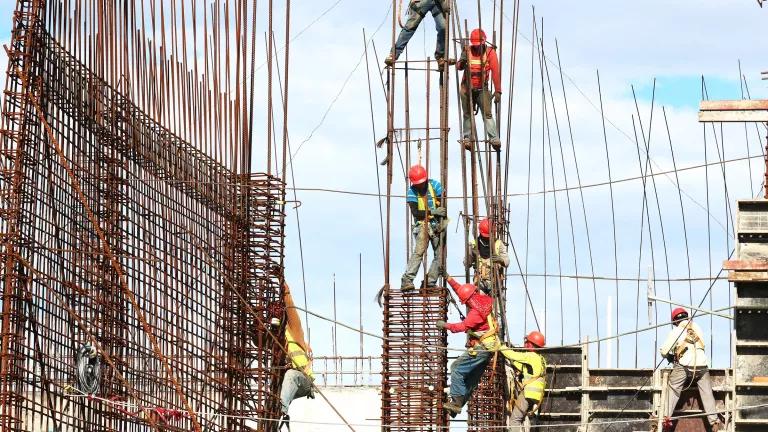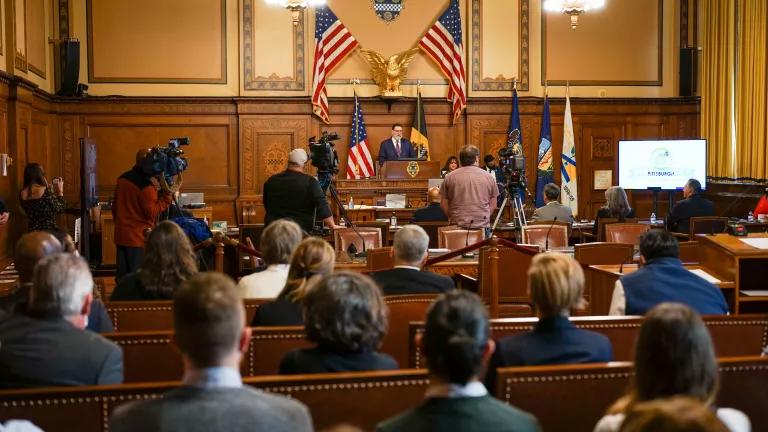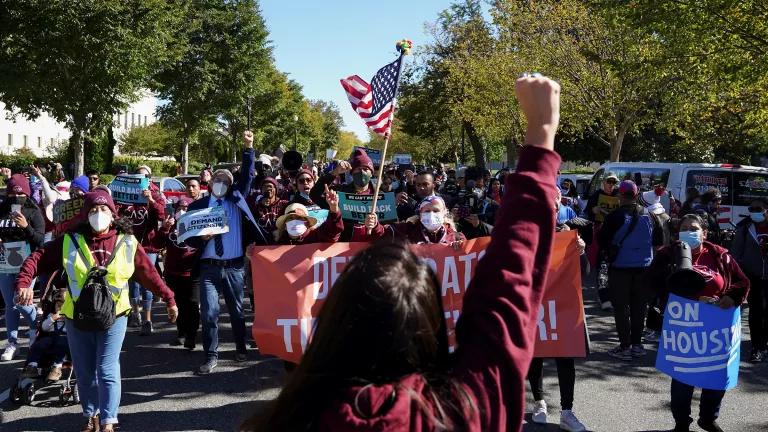
While many cities across the nation make goals and plan to tackle the climate crisis, Denver is putting its money where its mouth is. On the one-year anniversary of Denverites passing a groundbreaking initiative, Ballot Measure 2A, to raise funds for climate action, the City and County of Denver has outlined how it plans to invest the $40 million per year to advance equitable climate action. This roadmap for durable, deep investments in climate action begins with a goal to invest half of the funds directly to communities most impacted by climate change, including low-income, communities of color, and those living with chronic health conditions. The plan also brings Denver’s emissions reduction goals in line with science, seeking to reach net-zero emissions by 2040.
There are numerous benefits in the plan for Denver’s most impacted and vulnerable communities: energy efficiency upgrades to homes, priority access to local workforce training in clean energy technologies, improved affordable and reliable transportation, and resources to adapt to a changing climate. To be successful, the City will need continued commitment to working with the communities most impacted, shifting to a new paradigm, and being transparent and accountable to achieving both greenhouse gas and equity goals.
Roots of the fund
Ballot measure 2A and resulting Climate Protection Fund originate from a deliberative stakeholder process in 2020. Representatives from many groups including indigenous youth, real estate, Xcel Energy, faith communities, and many others, evaluated Denver’s climate goals, identified gaps, recommended solutions and identified a funding mechanism.
After evaluating numerous funding options, the Task Force ultimately reached a consensus on a sales tax increase to dedicate funding for climate work. Though regressive by nature, the sales tax in Denver exempts critical products, and 70 percent of the sales tax is paid by visitors. Additionally, the measure stipulated that at least half of the raised revenue should be spent “directly in the community with a strong lens toward equity, race, and social justice.”
When the Task Force recommendations then went to the public in November 2020, it passed overwhelmingly with nearly 65% of the vote, making Denver only the second city in the U.S. to have a taxpayer-supported fund focused on climate action.
Planning for the future
As the next step towards implementing this innovative new climate measure, Denver’s Office of Climate Action, Sustainability, and Resiliency (CASR) released a 5-year plan for spending the funds. What’s most exciting about this 5-year plan is that it recognizes the need for co-creating solutions with communities that are most impacted by pollution and the impacts of climate change. In another example of centering equity in the plan, the City will undertake a vulnerability assessment in 2022 and work with most vulnerable communities to ensure investments and policies benefit residents who need it most.
The plan establishes a 2030 goal of more than 60 percent reduction by 2030. Both goals put Denver in line with the Paris Climate Agreement and science-based targets.
Immediate investments in communities
Funding from the Climate Protection Fund is already flowing to the community through projects such as:
- Community solar: The City is installing 10 community solar gardens, focusing on providing clean energy to low- and moderate-income households while incorporating workforce development strategies.
- Environmental Justice Support fund: A new fund will help communities represent themselves in environmental policy and regulatory processes at the state and regional level.
- ‘Promotores Climaticas’: The Fund will support community-based organizations in conducting outreach on climate in vulnerable communities to inform future programs.
- E-bike transportation options: The Fund has established E-bike libraries in under-served communities to expand zero-emission transportation options.
- Home electrification: A new program co-led by a local health care partner will help lower-income families with respiratory problems upgrade to healthy electric appliances.
Takeaways
Climate change presents an existential crisis to our cities, especially to our most vulnerable communities already burdened by environmental injustice, lack of investment, and harmful policies. The passage of Ballot Measure 2A to create the Climate Protection Fund by an overwhelming margin of voters in Denver showed tremendous public will with a mandate from the people to act swiftly and justly. The recent release of a 5-year spending plan for the new funding highlights the City of Denver’s commitment to making good on this promise.





